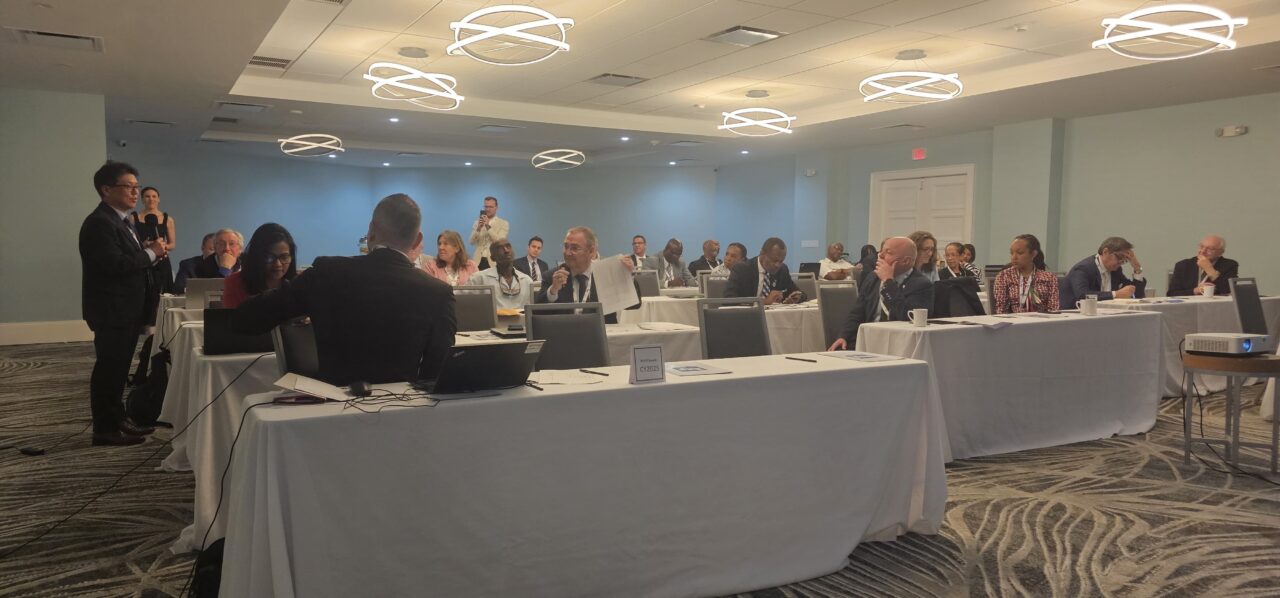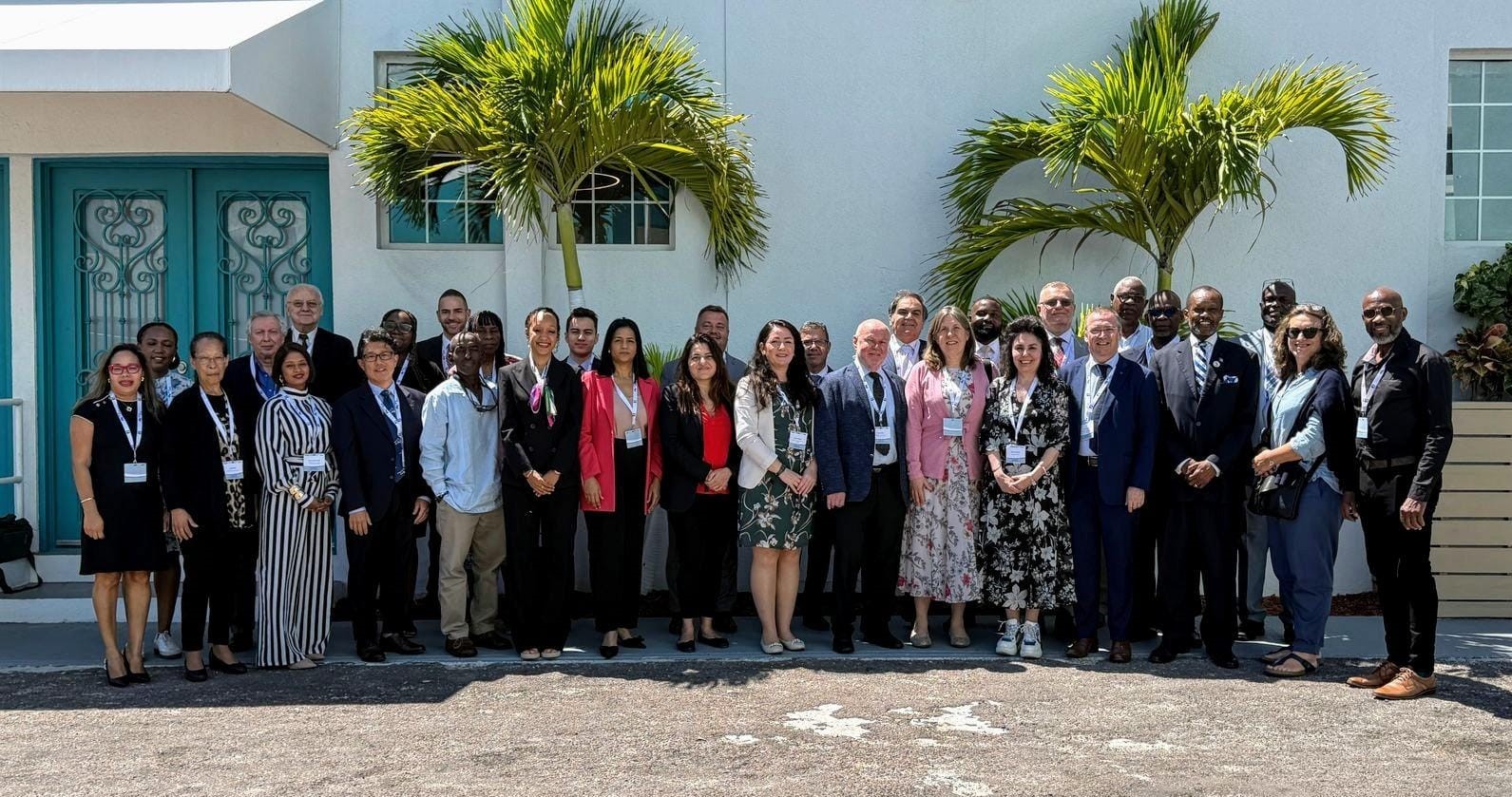(CARIFORUM Directorate, CARICOM Secretariat, Turkeyen, Greater Georgetown, Guyana) – Civil society representatives from CARIFORUM and the European Union (EU) met recently in The Bahamas to discuss the CARIFORUM-EU Economic Partnership Agreement (EPA), focusing on trade in services, the agreement’s five-year review, and the impact of International Labour Organisation (ILO) conventions on EPA implementation.
Representing the CARIFORUM Directorate at the Eighth Meeting of the CARIFORUM-EU Consultative Committee, Trade in Services and Investment Specialist, Mr. Akil Yearwood briefed participants on the Five-Year Review and its potential benefits for small and medium-sized enterprises (SMEs) as well as the significance of the joint statements issued by the Consultative Committee.
The discussions in The Bahamas also highlighted the role of the EPA in ensuring the maintenance of international labour standards and explored ways to enhance labour protections and foster closer collaboration between CARIFORUM and the EU.

Additionally, the discussions underscored, among other things, the importance of addressing trade challenges faced by CARIFORUM, boosting SME support, and strengthening cooperation to maximize the EPA’s mutual benefits.
The CARIFORUM-EU Consultative Committee was established under the EPA to promote dialogue and cooperation on economic, social, and environmental aspects of the EPA. It comprises 25 civil society organisations from CARIFORUM and 15 from the EU spanning academia, employer organizations, trade unions, labor bodies, financial institutions, and business entities.

One of the Committee’s mandates is to make recommendations to the CARIFORUM-EU Trade and Development Committee as well as the Joint CARIFORUM-EU Council to ensure the effective functioning of the Agreement.
Signed on 15 October 2008, the CARIFORUM-EU EPA aims to enhance trade and investment between 15 CARIFORUM States and 27 EU countries through a reciprocal but asymmetrical framework.
This comprehensive free trade and development agreement covers market access for industrial and agricultural goods; services and investment; and trade-related matters such as competition policy, procurement, innovation, intellectual property, transparency and social and environmental matters.






